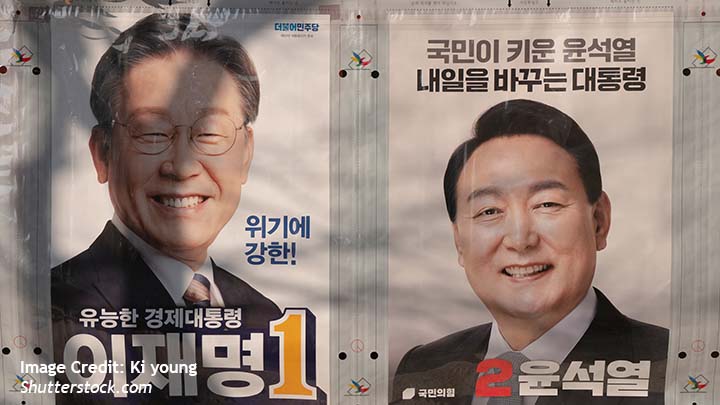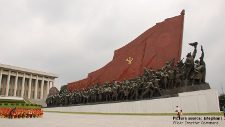South Korea’s Foreign Policy in Changing Times: Reversing Course?

Sang-Yoon Ma
Abstract:
The tragedy currently unfolding in Ukraine may be a symptom of new dynamics in global geopolitics. The changing balance of power epitomized by the rise of China and the shrinking American interest and resolve in asserting its traditional global role has emboldened Putin’s ambition to restore the past glory of the Russian empire. The same dynamics have also made geopolitics acuter in East Asia, from which South Korea can never be free. The COVID-19 pandemic since 2020 has only accelerated the competitive nature of international power dynamics. Faced with the broader shift in world order, how will South Korea’s foreign policy under the new government unfold? This policy brief attempts to explain the main objectives of the incoming government’s foreign policy and how these might be implemented. In so doing, it evaluates the new government’s view of the past five years of South Korean foreign policy under outgoing President Moon Jae-in – a policy which it seeks in part to reverse.
Related Publications
-
Anticipating North Korea’s Next Nuclear Test
This issue brief provides a comprehensive analysis of the anticipated technical and strategic objectives behind North Korea’s potential seventh nuclear test, along with an examination of the probable timing for […]
-
ISDP Annual Report 2023
ISDP’s Annual Report for the year 2023. We look back on 2023, a year in which tensions and conflicts captured the strategic space in ISDP’s focus areas, making headlines around […]
-
South Korea’s Indo-Pacific Strategy, Atmanirbhar Bharat, and the IPEF: Convergence and Commonality
For some time now, the existing multilateral networks such as those of the United Nations (UN) system have been largely ineffective in providing good global governance and helping create resilience, […]
-
Risk Reduction and Crisis Management on the Korean Peninsula
The situation on the Korean Peninsula is inherently intertwined with the growing instability of the East Asian security environment, where high tensions significantly increase the risk of unintended incidents and armed […]
-
Washington Declaration: Beyond Korea, What it Means for India?
In April 2023, South Korea and the United States released the Washington Declaration to reiterate and upgrade their treaty alliance. In outlining a joint nuclear deterrence strategy, the Declaration reaffirmed […]




